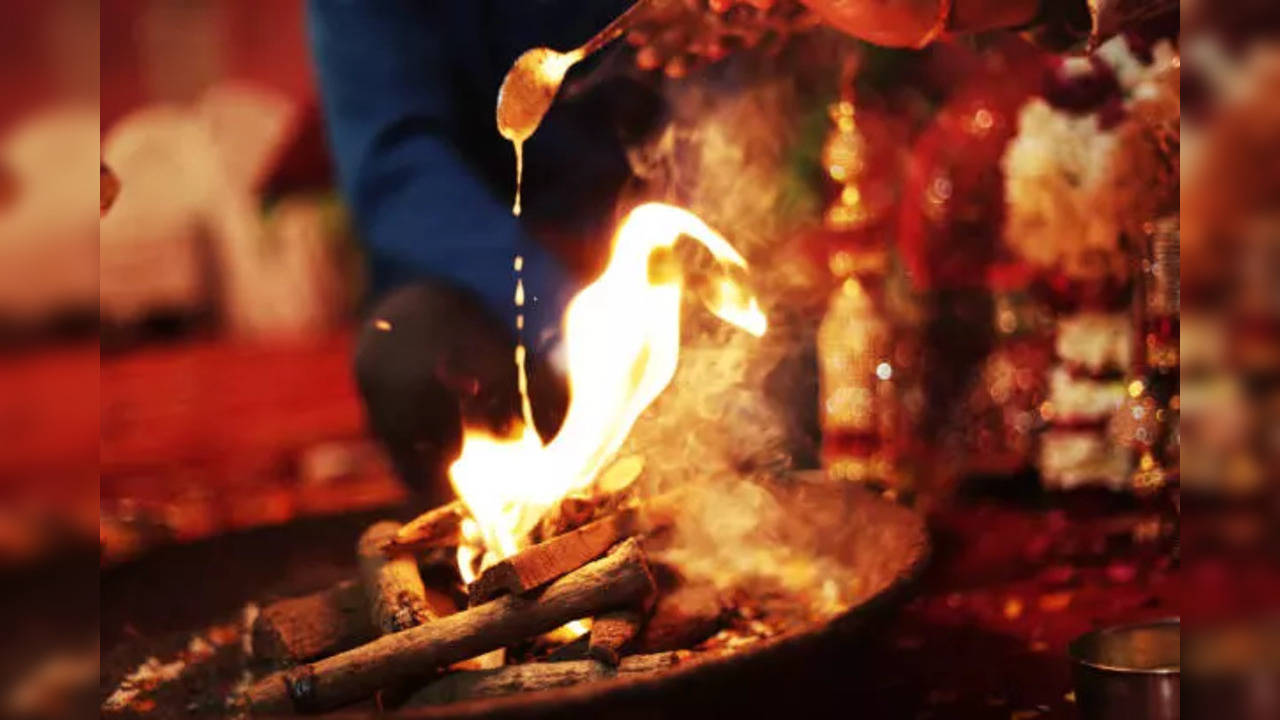Why is Fire Such an Important Element in Every Religion?
The different religions in the world propagate different ideas about the almighty and how one can reach out to him and improve their relations with him. However, one thing that is common across all religions seems to be the use of fire. Fire plays a very significant role in almost all religions of the world. Let us find out how fire came to be seen as the common element in all religions.

Fire and its role in different religions
Photo : iStock
Fire is one of the most common and vibrant symbols in every religion of the world. That is because the fire itself is considered the ultimate purifying agent. It holds different meanings and significance depending on the cultural and religious context. It also often holds ritualistic significance in the practices of many religious traditions. Let us find out what importance fire has in different religions.
Hinduism
Fire is very sacred in Hinduism and is used in various Hindu rituals, such as the Homa or Yajna, which involve offerings made to the fire as a means of purification, invoking blessings, and communing with the divine. Fire is also associated with the Hindu God Agni, who is considered the god of fire and the intermediary between humans and the gods. Fire is also used in performing marriage rituals and even to cremate the deceased.Christianity
In Christianity, fire is often used as a symbol of the Holy Spirit, representing divine presence, purification, and transformation. The story of the burning bush encountered by Moses, as well as the tongues of fire that descended upon the apostles during Pentecost, are significant events in the Christian tradition. Fire also symbolizes purification, renewal, and divine presence.Apart from this fire is often used as a symbol or sign of God's presence in Christianity and, since it is held to be a creation along with water and other elements. In the New Testament, Jesus is depicted as the person who brings fire to the earth. The Holy Spirit is sometimes called the "tongues of flame".
Islam
Fire is mentioned in the Quran, the holy book of Islam, and is often associated with punishment in the afterlife for those who have deviated from the path of Allah. Fire also symbolizes purification and is used in rituals such as the aarti, a ceremonial waving of a lit lamp in Sufi practices.Fire also represents the Annihilation of the Jinn. The obliteration of jinn is cited in the Holy Qur'Én along with human beings. The connotation of fire as a material for the creation and annihilation of jinn shows that the opposites can be united only through symbolism.
Judaism
In Judaism, the eternal flame, which is lit and kept burning in synagogues, represents the divine presence of God and serves as a reminder of the burning bush that Moses encountered. Fire is also used in Jewish rituals, such as the lighting of the Sabbath candles and the Hanukkah menorah.Zoroastrianism
Fire is considered one of the most sacred elements in Zoroastrianism, the ancient Persian religion. Zoroastrians believe in the worship of fire as a symbol of purity and divinity. Fire temples, known as “Atash Behrams” or “Atash Kadehs,” are considered the holiest places of worship in Zoroastrianism, and fire is venerated as a visible representation of the divine.Native American religions
Fire plays a significant role in many Native American religions, where it is often associated with the sun, warmth, and illumination. Fire is used in various rituals and ceremonies, such as the sweat lodge ceremonies, pipe ceremonies, and sun dance ceremonies, as a means of purification, healing, and connecting with the spirit world.Buddhism
In Buddhism, fire is often seen as a symbol of transformation and purification. In some Buddhist traditions, fire is used in rituals to burn offerings and purify negative energies. The concept of an “inner fire” or “inner light” can also represent the intrinsic nature of enlightenment and spiritual awakening.That symbol of fire-as-self comes from the Vedic culture in which the Buddha lived, in which fire rituals were perceived to modify the self (atman), and the ritual fire was seen as the equivalent of the self.
African religions
In many African traditional religions, fire is often associated with the concept of life force and vitality. Fire is considered a potent symbol of purification, transformation, and communication with ancestors in many African religions. Fire is used in rituals and ceremonies to honor ancestors, cleanse spiritual spaces, and communicate with the spirit world.Trending:
End of Article
Subscribe to our daily Newsletter!
Related News





When is the Third Month of the Hindu Calendar Starting? Know its Significance and What to do

Offering Arghya from This Vessel in Vaishakh Month Will Strengthen Sun’s Position in Your Horoscope

Budhwa Mangal 2024: What Is Budhwa Mangal? Know its Significance and Mythology

Sindoor Daan: What is the Significance of Sindoor Daan, and is a Hindu Marriage Incomplete Without it?

Motherhood And Mothers In Hindu Mythology









